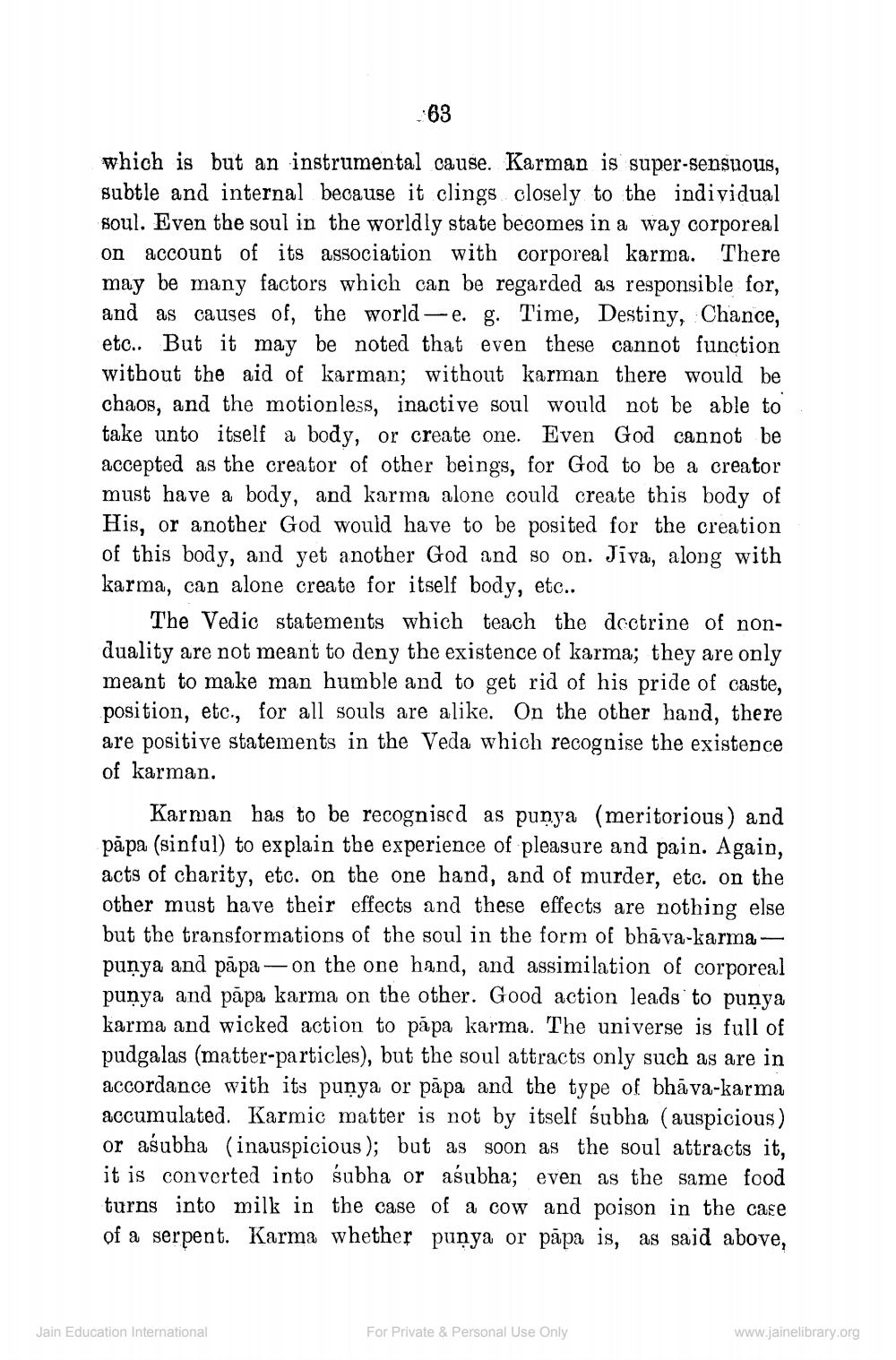________________
63
which is but an instrumental cause. Karman is super-sensuous, subtle and internal because it clings closely to the individual soul. Even the soul in the worldly state becomes in a way corporeal on account of its association with corporeal karma. There may be many factors which can be regarded as responsible for, and as causes of the world-e. g. Time, Destiny, Chance, etc.. But it may be noted that even these cannot function without the aid of karman; without karman there would be chaos, and the motionless, inactive soul would not be able to take unto itself a body, or create one. Even God cannot be accepted as the creator of other beings, for God to be a creator must have a body, and karma alone could create this body of His, or another God would have to be posited for the creation of this body, and yet another God and so on. Jiva, along with karma, can alone create for itself body, etc..
The Vedic statements which teach the doctrine of nonduality are not meant to deny the existence of karma; they are only meant to make man humble and to get rid of his pride of caste, position, etc., for all souls are alike. On the other hand, there are positive statements in the Veda which recognise the existence of karman.
Karman has to be recognised as punya (meritorious) and påpa (sinful) to explain the experience of pleasure and pain. Again, acts of charity, etc. on the one hand, and of murder, etc. on the other must have their effects and these effects are nothing else but the transformations of the soul in the form of bhāva-karma - punya and pāpa — on the one hand, and assimilation of corporeal punya and pāpa karma on the other. Good action leads to punya karma and wicked action to păpa karma. The universe is full of pudgalas (matter-particles), but the soul attracts only such as are in accordance with its punya or pāpa and the type of bhāva-karma accumulated. Karmic matter is not by itself śubha (auspicious) or aśubha (inauspicious ); but as soon as the soul attracts it, it is converted into śubha or aśubha; even as the same food turns into milk in the case of a cow and poison in the case of a serpent. Karma whether punya or păpa is, as said above,
Jain Education International
For Private & Personal Use Only
www.jainelibrary.org




